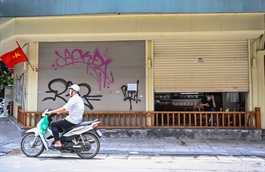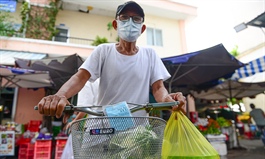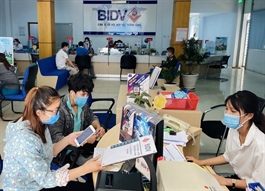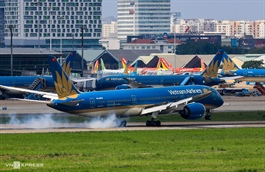Viet Nam’s economy to surpass Singapore's by 2030: DBS Bank
Viet Nam’s economy to surpass Singapore's by 2030: DBS Bank
Viet Nam’s economy is expected to grow by between 6-6.5 per cent over the next decade. If it does, it will surpass Singapore by 2030, DBS Bank experts have said. 
Last year, Viet Nam’s economy was worth US$343 billion while Singapore’s was $337.5 billion, and Malaysia’s hit $336.3 billion. This ranks Viet Nam the 40th largest economy globally and fourth in the Association of Southeast Asian Nations (ASEAN).
In their latest forecast, the International Monetary Fund (IMF) and the Asian Development Bank (ADB) said Viet Nam was on track to outpace both Malaysia and Singapore this year.
Despite two waves of COVID-19 in the first half of this year heavily impacting industrial hubs, Viet Nam’s still posted gross domestic product (GDP) growth of 5.64 per cent. Its export revenue rose 28.4 per cent compared to the same period last year.
Although GDP expanded slower than expected, it was still much higher than the 1.82 per cent recorded in the same period last year.
This suggests that policies, strategies and directives aimed at both controlling the pandemic and ensuring socio-economic development have been effective.
Standard Chartered on Thursday also released a survey that said that ASEAN companies focusing on intra-regional opportunities expect to experience robust growth over the next 12 months.
The survey was a part of its “Borderless Business: Intra-ASEAN Corridor” report that explores high-potential opportunities for cross-border growth within the region.
The most important drivers for expansion across the region, according to the senior executives surveyed, were: access to the large and growing ASEAN consumer market, access to a global market enabled by a network of Free Trade Agreements, and availability of abundant and skilled workforce.
In addition, the Regional Comprehensive Economic Partnership (RCEP) is expected to attract more investment in ASEAN, with all respondents saying they are planning to increase their investments over the next 3-5 years.
Furthermore, 80 per cent of the surveyed respondents said they were focusing on expanding in Singapore to capture sales and production opportunities, followed by Thailand, and then Viet Nam.
As ASEAN companies look to invest across the region, Singapore is considered the most desirable market for companies to set up to host their regional sales and marketing teams, headquarters, and research and development teams.
The survey also identifies a wide range of risks in the region including: COVID-19 and/or other health crises, geopolitical uncertainty and trade conflicts, and a drop in consumer spending.
Furthermore, respondents said that adapting their business model to industry practices and conditions within ASEAN, building relationships with suppliers, and adapting supply chain logistics, as well as understanding regional regulations, payment methods, and infrastructure, are the most significant challenges they face in the next 6-12 months.
To drive resilient and rebalanced growth in ASEAN and to mitigate these risks and challenges, the surveyed executives said entering new partnerships and joint ventures to increase their market presence would be key.
They also said that sustainability and environmental; social, and governance initiatives; and executing digital transformation programmes are the most important areas their companies will focus on.
To further support their growth, these companies say they are seeking banking partners with strong cash management capabilities, one-stop corporate financing and capital-raising services, and extensive trade financing services.
Michele Wee, CEO, Standard Chartered Vietnam, said: “Viet Nam continues to offer appealing business and investment opportunities given its strong fundamentals – robust economic growth, a sizable domestic market, low labour costs, an abundant workforce, free trade agreements, and strategic location. ”






















